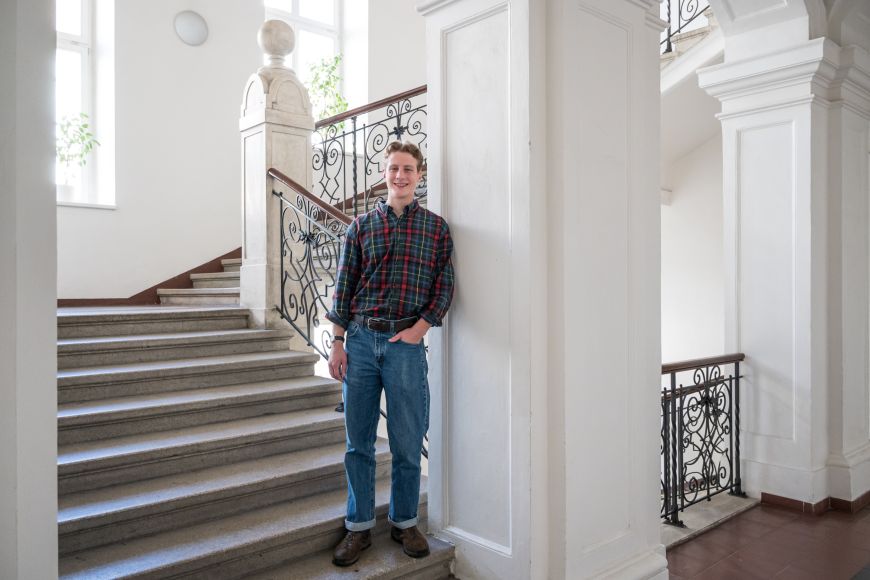American student Samuel Handy, in his fourth year of Russian language studies at the University of Vermont, was supposed to study in St. Petersburg in the autumn. But then came the war in Ukraine, and he ended up at Masaryk University. He chose MU primarily because of CESP, a unique programme focusing on Central European studies.
The Central European Studies Programme (CESP) has existed at Masaryk University for more than 20 years, and in total more than 300 non-European students, mostly from the USA, Canada, Mexico, Costa Rica, and Japan, have come to Brno to study through it. The interdisciplinary programme is tailored to students interested in the social, economic, political, and cultural transformation of Central Europe, but students can enrol in other subjects offered by all ten faculties at MU.
“I love history, languages, and culture, so CESP was exactly what I was looking for. It appealed to me mainly because of the exciting variety of courses and the opportunity to focus more deeply on languages during my studies. What's more, I was attracted to Brno itself. Not only because it is one of the safest places, but also because it lies at the heart of the rich history and culture of Central Europe, which I have read so much about as a fan of history,” Samuel explains.
Right in the middle of a Napoleonic battle
Although he had read a lot about the history of Central Europe, he was pleasantly surprised to learn, after arriving in Brno, that only 20 kilometres from there lies the town of Slavkov (in German, Austerlitz), where the legendary Battle of the Three Emperors took place in 1805, when Napoleon defeated the Austrian and Russian armies. This historic battle is regularly commemorated in the Czech Republic, so Samuel attended a re-enactment of the battle in early December, which was watched by over 10,000 spectators.
“It was an incredible experience to see a thousand soldiers in uniform showing how a battle that changed Europe took place 200 years ago. I didn't expect to experience something like that on a study visit, and I was very impressed,” says the student.
The reconstruction of the battle gave Samuel a closer look into the history of Central Europe as did a specialized MU course about the history of the region. He also discovered a lot about history thanks to his tour of the provinces of the Habsburg monarchy, taking him to Austria, Poland, and the Czech Republic.
CESP allows you to focus on what interests you
But history and history-oriented courses weren’t the only things that interested him at CESP. He also enrolled in several courses at the Faculty of Education, the Faculty of Law, and the Faculty of Social Studies that focused on international organizations, international security, and populist communication. His favourite courses included Czech for beginners and a course where the lectures were only in Russian.
“The course taught entirely in Russian was the most challenging for me, and in the first class, I felt like I was lost at sea because I didn't understand much. But practising teaches you the most. By the end of the semester, it wasn’t so bad, and I was able to converse even about such complex topics as economics and globalization. I was proud of myself,” says Samuel.
Russian is particularly important to him because he enjoys the language and would like to work as a translator and interpreter in the future. He is thinking about working for NATO or teaching English somewhere in Russia, but it is difficult to be sure now because of the current political situation. Still, he believes that Russian will be useful for his career, which is one of the reasons he came to MU: to gain linguistic and cultural experience.
“It’s not easy to find a programme that focuses on so many topics close to my heart while allowing me to enrol in anything I want. That’s why I’m so excited about my study placement at MU. It met all my expectations and more. But the absolute best part was the different people I met, whether they were professors passionate about their teaching, students from all over the world, or strangers off the street. I am very glad that I ended up at MU. It was a very valuable experience, and I believe it will be very useful for me in the future,” concludes the student from the USA.

